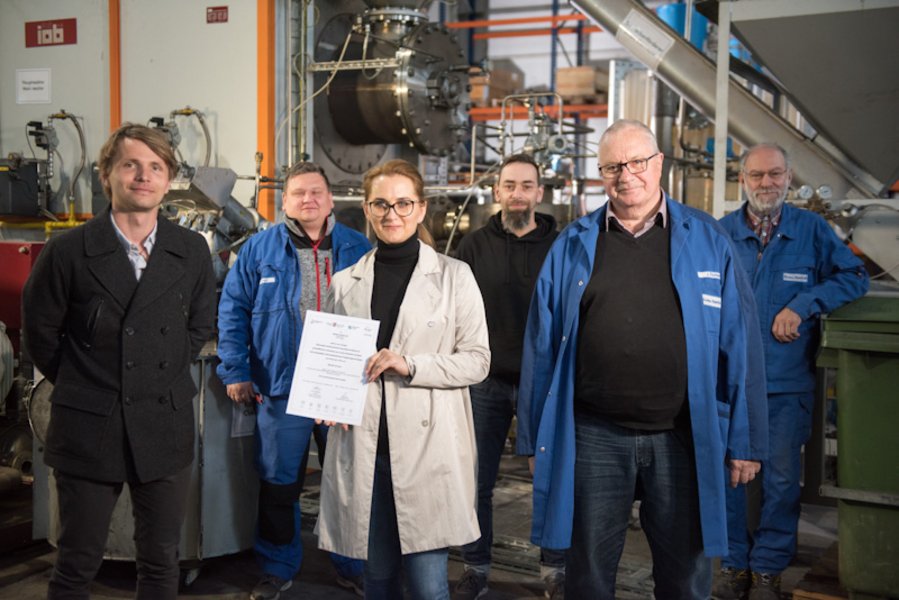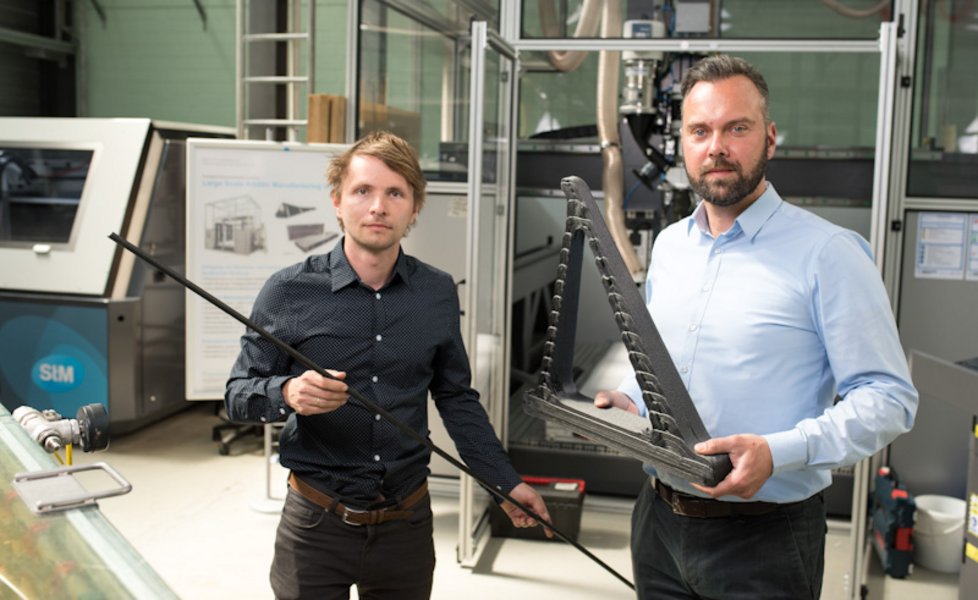Sustainable and resource-saving recycling of plastic waste
From wind turbines and vehicles to sailing boats, bicycles, snowboards and rollators - components made of carbon fibre-reinforced plastic (CFRP) are used in many different ways. They are ultra-light, high-strength and extremely rigid at the same time.
With the planned pilot plant, the world's first thermocatalytic degassing plant for CFRP waste is being built in Guben. The scientists led by Prof. Dr.-Ing. Holger Seidlitz at the Chair of Polymer-based Lightweight Design are working on this together with Global EnerTec AG. "Our goal is to pave the way for the company into the market for carbon component recycling", says Prof. Holger Seidlitz.
"In addition to the lucrative waste take-back, the process should enable the sale of recycled fibres to compounders for reuse, thus opening up a new business field for the company." After successful process and plant optimisation, global distribution of the plant technology is planned.
Due to the widespread use of fibre composite components in a wide variety of industries, an increasing amount of waste can be expected today, but also in the future. The project partners face this task. "A major challenge in the recycling of CFRP components is to ensure the quality necessary for the subsequent application and, in particular, to reduce deviations in the mechanical properties," says Jonas Krenz. "We test the recovered fibres for damage in our laboratories. We are interested in the correlation between the degree of damage and the mechanical properties of the future recycled components."
In addition to marketing the recycled fibres, Global EnerTec AG aims to increase the energy efficiency of the degassing process by using catalysts. In this way, fibre damage can be minimised from the outset. The company is an established process and plant developer for energy-efficient recycling processes. It sells the thermocatalytic degassing process developed in Guben and the necessary plants worldwide. So far, similar recycling strategies have been used for the tyre and belt recycling of the regional opencast lignite mines. The pilot plant in Guben is now being converted for the recycling of carbon components and the recycling process suitable for the material is being researched.
The project is funded by the Federal Ministry for Economic Affairs and Energy as part of the federal model project "Unternehmen Revier". The federal government's regional partner is the Wirtschaftsregion Lausitz GmbH. The federal government's implementing partner is the Landkreis Spree-Neiße / Wokrejs Sprjewja-Nysa“.
Contact
Polymerbasierter Leichtbau
T +49 (0) 355 69-2344
Holger.Seidlitz(at)B-TU.De


